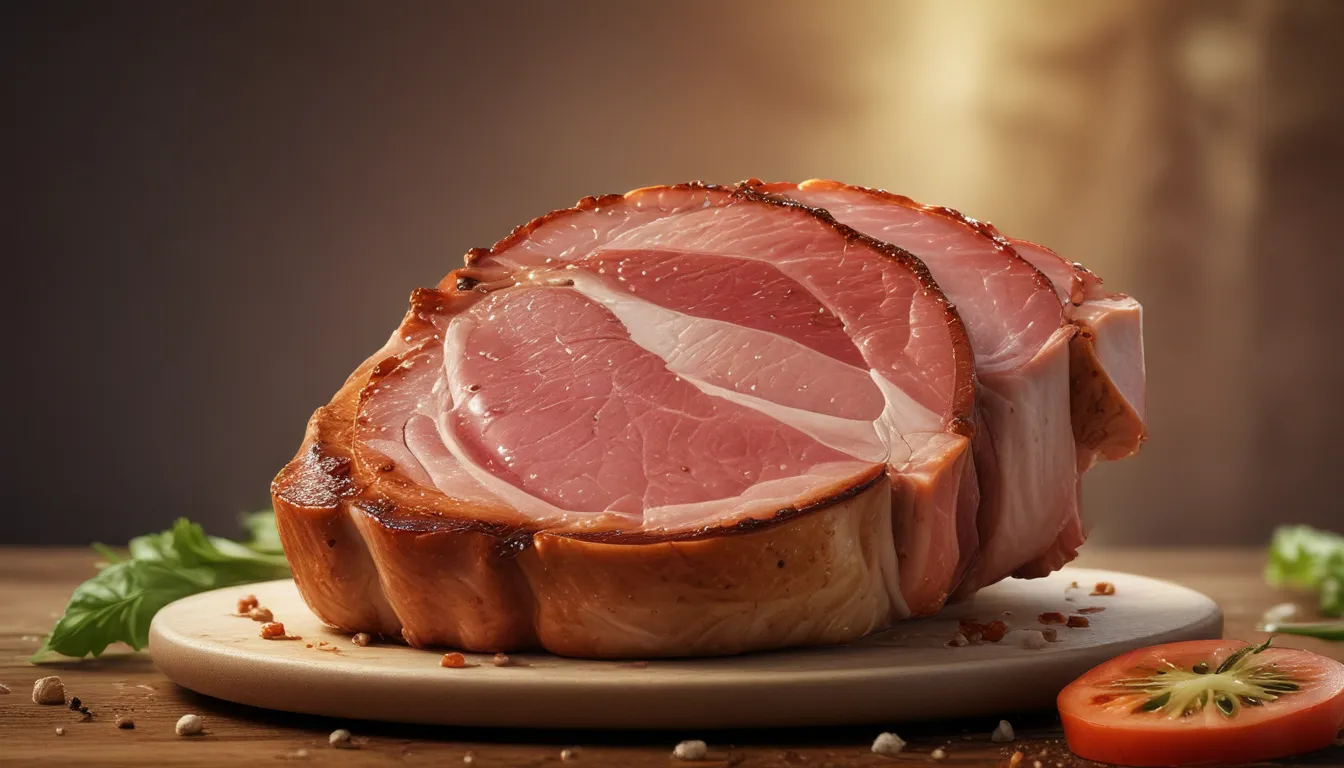The pictures in our articles might not always show exactly what the text is talking about. We use these images to make the article more interesting and eye-catching. They are there to add to the text, but not to replace it or show every detail.
Are you a fan of delicious pork chops but curious about their nutritional value? Look no further! Pork chops not only satisfy your taste buds but also offer a host of essential nutrients. From protein to vitamins and minerals, pork chops can fit seamlessly into a balanced diet. In this comprehensive guide, we will explore the 11 key nutritional facts about pork chops, shedding light on their health benefits and how they can support your overall well-being. So, if you're eager to learn more about the nutritional powerhouse that is pork chops, keep reading to uncover everything you need to know.
Unveiling the Nutritional Power of Pork Chops
When it comes to protein content, pork chops are a true powerhouse. A mere 3-ounce serving of pork chops provides approximately 22 grams of protein, making it an excellent choice for muscle growth and repair.
Essential Vitamins for Vitality
Rich in essential vitamins like vitamin B12, vitamin B6, and niacin, pork chops play a crucial role in maintaining healthy nerve function, DNA synthesis, and energy production.
Mining for Minerals in Pork Chops
Delve into the mineral treasure trove of pork chops, which boast essential minerals such as zinc, phosphorus, and selenium. These minerals are vital for immune function, bone strength, and antioxidant protection against oxidative stress.
Embracing Heart-Healthy Fats
Pork chops contain heart-healthy monounsaturated fats that can aid in lowering bad cholesterol levels. These fats also contribute to a feeling of fullness, helping you stay satisfied for longer periods.
Riding the Low-Carb Wave
For individuals following a low-carb or keto diet, pork chops are a natural fit, thanks to their low carbohydrate content. Enjoy a fulfilling meal without experiencing rapid spikes in blood sugar levels.
Iron-Rich Goodness
Fuel your body with iron from pork chops, a mineral essential for red blood cell production. Adequate iron intake can help stave off anemia and promote optimal oxygen transport throughout your body.
Calorie-Conscious Consumption
Indulge in a serving of trimmed, boneless pork chop guilt-free, as it contains a mere 120-150 calories per 3-ounce serving. Opt for a lean and calorie-conscious option for a satisfying meal.
Versatile Cooking Techniques
Explore the myriad ways to prepare pork chops, from grilling to baking and pan-frying. With their versatility, you can customize your cooking method to suit your preferences while retaining their nutritional benefits.
B-Vitamin Bonanza
Dive into the world of B vitamins with pork chops, rich in thiamine, riboflavin, and pantothenic acid. These vitamins are essential for energy metabolism and converting food into usable energy for your body.
Fortifying Immune Health
Support your immune system with pork chops, which provide vital nutrients like zinc and selenium. A robust immune system is crucial for warding off infections and maintaining overall health.
Muscle Support courtesy of Creatine
Harness the power of creatine found in pork chops, a compound that aids in muscle function and performance. Incorporating pork chops into your diet can enhance physical activity and athletic prowess.
Final Thoughts on Pork Chop Nutrition
In conclusion, pork chops are not only delectable but also brimming with essential nutrients. Packed with high-quality protein, vitamins, and minerals like iron and zinc, pork chops are a valuable addition to a healthy diet. Remember, the nutritional value of pork chops can vary based on cooking methods and ingredients used. Opt for lean cuts, trim excess fat, and choose healthier cooking techniques like grilling or baking for optimal health benefits.
FAQs for Pork Chop Enthusiasts
- Are pork chops high in protein?
-
Yes, pork chops are a rich source of lean protein, offering approximately 27 grams per serving.
-
Should I opt for lean cuts of pork chops?
-
Choosing lean cuts is advisable to reduce saturated fat intake. Trim visible fat before cooking for a healthier option.
-
Which key vitamins and minerals are present in pork chops?
-
Iron, zinc, vitamin B12, niacin, and selenium are among the essential nutrients found in pork chops, supporting various bodily functions.
-
What is the optimal cooking method for pork chops?
-
Grilling or baking pork chops preserves their natural flavors while minimizing unhealthy fats, making them the preferred cooking methods.
-
Can pork chops be part of a healthy diet?
- Yes, when consumed in moderation and prepared healthily, pork chops can be a nutritious addition to your diet. Remember to balance your meals with a variety of nutrient-dense foods for overall well-being.
Incorporating pork chops into your meal plan is a flavorful and nutritious way to support your health goals. Whether you're an amateur cook or a culinary connoisseur, experimenting with pork chops opens up a world of exciting possibilities. With their nutrient-rich profile and culinary flexibility, pork chops are a versatile ingredient that can elevate your meals while nourishing your body. So, unleash your creativity in the kitchen and savor the deliciousness and wholesomeness of pork chops!
We strive to provide you with accurate and enlightening content. Each piece of information on our platform is contributed by individuals like you, bringing a diverse range of insights to our readers. Our dedicated editors ensure the reliability and authenticity of every fact shared, guaranteeing both fascination and credibility in your learning experience. Trust in our commitment to excellence as you delve into the world of knowledge and discovery with us.






